'It disappoints and saddens me that Mahua has allowed herself to be carried away by the Goebbelsian onslaught mounted on the BJP and Narendra Modi by certain vested interests which find themselves exposed and thrown out of the gravy train,' says B S Raghavan, the distinguished civil servant.
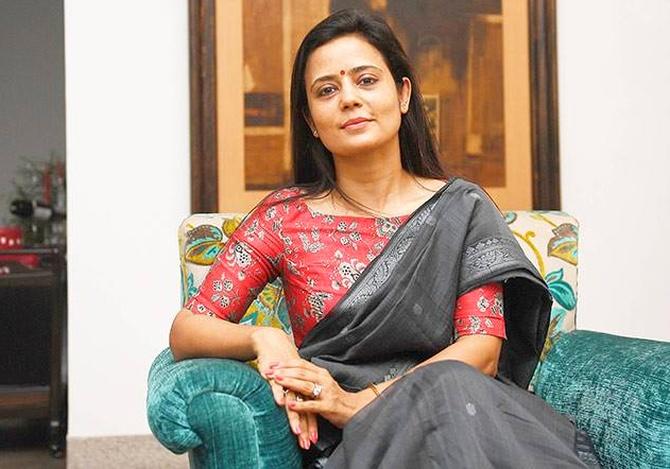
I have known of Lord Byron who awoke one morning and found himself famous with the publication of his poem Childe Harold's Pilgrimage.
Rack my brains however I might, I can't readily recall a newly elected member to the national legislature of a country who became instantly famous with his or her maiden speech.
To Mahua Moitra of the All India Trinamool Congress, elected to the Lok Sabha recently from the Krishnagar constituency of West Bengal, justly belongs that credit.
A former vice-president at JP Morgan Chase in New York and a bright alumna of Mount Holyoke college in Massachusetts in mathematics and economics, she was for some time in the Youth Congress before switching to the TMC, as a member of the state assembly elected from Karimnagar and as its national spokesperson.
Her maiden speech in the Lok Sabha has deservedly received plaudits for its spiritedness. In common with many, I too was impressed with the way she wielded the English language as a powerful medium to make her points, although I disagreed with each one of them.
She seems endowed with a sharp mind, and intellectual gifts and talents that should help her spread wings and broaden her horizons and become a charismatic leader. (Another member I see making his mark with his notable debating skills is the leader of the Congress party, Adhir Ranjan Chowdhury.)
But, alas, Mahua is the right MP in the wrong party.
The TMC, as it functions now, is definitely not the party for her. As a West Bengal civilian, I knew Mamata Banerjee right from the days she came into public life and became a first time MP. In the abundance of energy, courage of conviction, the 'killer instinct', austerity and simplicity, she has few parallels in public life.
Mamata's personal integrity may be unquestioned, but her willingness to put up with, if not condone, the financial malfeasance and criminal proclivities of some of her party colleagues makes one wonder whether and why she has opted for the dadagiri brand of politics, resulting in the lack of a balanced and temperate approach to public and political issues, and making her vituperative and abrasive.
Unless Mahua, with her charm and finesse, can change the political style of the TMC and its supremo, she also will become the flotsam and jetsam of the party in no time, squandering away her wide-ranging capabilities.
She is already showing signs of heading for such an eventuality, setting at naught her worldwide exposure to creative and constructive dimensions of leadership in finance, industry and public affairs, and all her communication skills.
The first such sign is the singularly ill-chosen theme of her maiden speech.
Mahua has dissipated all her oratorical prowess on seven so-called signs of fascism that she attributes to the Bharatiya Janata Party and Narendra Damodardas Modi. They are among the 14 dished out by Dr Lawrence Britt in the spring of 2003 in an article Fascism Anyone in a hitherto unheard of publication, Free Inquiry.
Mahua has chosen to include in her litany of accusations seven of these (powerful and continuing nationalism; disdain for human rights; controlled mass media; obsession with national security; intertwining of religion and government; disdain for intellectuals and the arts; and fraudulent elections).
(The rest of the seven 'sins' trotted out by Dr Britt from which Mahua has mercifully spared the BJP and Modi are: Identification of enemies/scapegoats as a unifying cause; supremacy of the military; rampant sexism; protection of corporate power; suppression of labour power; obsession with crime and punishment; and rampant cronyism and corruption.)
It doesn't befit her academic and professional background and the discernment that should normally go with it to resort to such an untenably fierce description of the conditions in the country which are nowhere and no whit like what she has painted.
She should not have fallen for the pretentious concoctions of foreign scribes, often masquerading as scholars. Simply because these concoctions are served under a foreign authorship, they do not become infallible guiding principles.
Even if one were to take them at face value, one is unable to find any material to support a single one of the seven signs mentioned by Mahua. No one in fairness and good conscience can find fault with nationalism per se, nor with national security being given importance.
Isn't eternal vigilance the price of liberty?
The reference to 'disdain for intellectuals and the arts' and 'fraudulent elections' borders on the absurd.
As for 'disdain for human rights', Mahua's main complaint is against the steps being taken against illegal immigrants. It is being utterly naïve or totally negligent to ignore the existence of a problem which constitutes a major threat to security and stability and which has grown to such proportions because of the machinations of anti-national and subversive elements and collusion of corrupt politicians.
Does or doesn't Mahua consider illegal immigration a grave menace? If she doesn't, what is her reason? If she does, how will she go about it?
On the question of 'intertwining of religion and government', Mahua's grievance that people are made to chant 'Jai Shri Ram', and BJP MPs do so on every pretext is too ludicrous even to mention.
The seventh accusation of 'controlled mass media' will not bear a single second's scrutiny by anyone with a modicum of intelligence and reasoning capacity browsing the contents of the day's print and electronic media in India.
It disappoints and saddens me no end that Mahua has allowed herself to be carried away by the Goebbelsian onslaught mounted on the BJP and Modi by certain vested interests which find themselves exposed and thrown out of the gravy train.
These groups are doing it with a perniciousness and pertinacity that I have not seen in my 80 year-long experience of handling macro- and micro- issues of politics and public affairs in the higher reaches of the state and central governments and the UN.
The vilification campaign which started with attacking Modi as 'the merchant of death' has been unrelenting and unceasing in depicting even the government's understandable and remediable lapses as downright villainy and laying them all at the door of the BJP and Modi.
The epithets used against them have been outrageous, to say the least. Even Goebbels was a little more civilised.
Those fixated on the one-point agenda of going after the BJP and Modi are like the candidate who was undergoing a psychological test for appointment to a post. The psychologist drew the picture of a crow and asked the applicant what it reminded him of. The candidate said: Sex.
The psychologist drew the picture of a lamp and asked the candidate's reaction: He promptly said it too reminded him of sex.
The psychologist then drew a circle and asked the applicant what he thought of that and got the same answer: Sex!
The psychologist flared up, and shouted: 'What has come over you? How is it everything I draw reminds you of sex and nothing else?'
The candidate coolly said: 'Why blame me, Sir? What can I do if you keep on drawing all that sexy stuff every time?'
B S Raghavan is a former member of the Indian Administrative Service, a US Congressional Fellow and Policy Adviser to the UN (FAO).
He has held leadership positions in India's state and central governments handling issues pertaining to political policy planning, national security, intelligence, energy and food security.

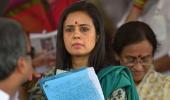
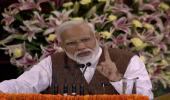





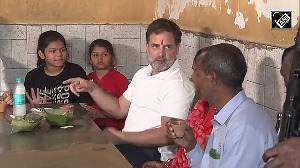
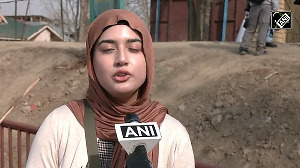

 © 2025
© 2025